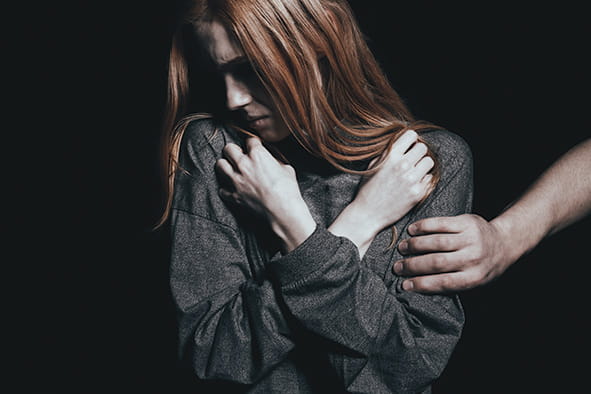Mental health is just as important as physical health. but, very Often we miss the signs of a problem that needs to be addressed professionally. Reshma O. Pathare throws light on everything you need to know to help yourself or a loved one fighting a psychological battle.

Look around you: Do you know at least one woman, who seems to be well settled in her life and has no apparent physical problem but is prone to severe mood swings, panic attacks, displays lack of trust on everybody or just refuses to smile ever? Chances are, you know a woman who has one or more mental disorders! It is a myth that mental disorders happen to only certain type of women—read, suppressed or tortured. It is also untrue that mental disorders can be called such only when they reach overt proportions and require emergency psychiatric treatment. Rather, mental disorders can range from seemingly simple anxiety to the graver schizophrenia or OCD. It is not that men do not suffer from mental illnesses–they do–but women, with their core nature being emotional, coupled with several hormonal changes that they undergo, are somehow more prone to get affected easily. The National Mental Health Survey conducted by NIMHANS last year showed that while 13.9 per cent of Indian males are affected by mental illnesses as compared to 7.5 per cent of women, certain problems such as anxiety, depression, stress-related issues and neurotic disorders are more prevalent among women. While genetics play a major role in this, external stressors like fast-paced lifestyle, a breakdown of support system and financial instability apart from sexual abuse, harassment and gender racism also affect women a lot.
WHY US?
Women are predominantly prone to five mental disorders viz. depression, anxiety, panic anxiety, post-traumatic stress disorder (PTSD) and borderline personality disorder (BPD). While women suffer from these problems the world over, they get pronounced in the Indian milieu due to the social and familial conditions. Psychologist Dr Anil Sethi of SIEM Services, New Delhi, attributes this problem to the social, financial and educational subjugation that Indian women, especially from less affluent backgrounds, go through. “Our social system is flawed, in the sense, that it teaches girls to tolerate all kinds of exploitation and violence for flimsy reasons like family honour. A lot of women in our country have been used, misused and abused in cold-hearted ways. Add to that, less education and little or no financial independence, that make them a vulnerable target for mental disorders that crop up due to years of being pushed around.”
Clinical Psychologist Anastasia Dedhia of Mind Mantra, Mumbai, adds to this saying,“In urbane women, problems of mental disorders start because of the confused upbringing they have. We live in a hypocritical society wherein parents want their children (both male and female) to adopt Western mannerisms but also adhere to traditional Indian rules. What starts as mere confusion in a child, grows onto becoming deep-rooted problems in him/her in adulthood.”
Women undergo several transitions throughout their life and these changes create several emotional upheavals in them; most of which go unnoticed and thus unaddressed, leading to compounding problems later on. Clinical Psychologist Dr Shubha Madhusudhan from Fortis Hospitals Bengaluru gives a helpful low-down about the changes a woman goes through from a developmental perspective. “During 10-12 years of age, girls start menstruating. The sudden shift into adulthood coupled with the mothers’ anxiety results in the young girls getting depressed. During 12-15 years of age, parental over-cautioning to daughters about the opposite gender creates negativity, hesitation and low confidence in them. Between 15 and 30 years of age, girls are under extreme stress for shaping up their academics, career, marriage and later childbirth. Many of them develop PCOD, with depression and obesity becoming co-morbid factors. Between 30 and 45 years of age, factors like geographical relocation of the spouse or spousal health creates anxieties in women. Then, between 45 and 60 years of age, perimenopause and menopause set in, causing disruption in sleeping patterns and hot flushes, coupled with an empty nest syndrome. Negative treatment from children and death of the spouse add to physical and emotional complications in a woman,” explains Dr Madhusudhan.

WATCH OUT FOR THE RED FLAGS
Mental disorders can be both easy and difficult to identify. Counselling Psychologist Rachana Awatramani of Insight Counseling Services LLP Mumbai lists some of these signs saying, “Watch out for irrational mood swings, constant fatigue, excessive use of social media, self-inflicted isolation, concentration issues and intense anger. These are some common symptoms that mushroom when someone starts to suffer from a mental disorder. Physical symptoms can include ulcers, exhaustion, constant headaches, diarrhoea and sexual dysfunction among others; whereas behavioural symptoms include increased smoking or drinking, overeating, aggressive driving and compulsive actions like washing hands repeatedly and checking and rechecking taps, locks, etc.”
The five commonest mental disorders in women also have some specific symptoms. For instance, depression is earmarked by a sense of alienation and no meaning to life, coupled with very low self-esteem. Anxiety manifests into negative thoughts and escapism. Panic disorder stems from irrational fear of something trivial coupled with physical symptoms like severe chest pain and dizziness. Post-Traumatic Stress disorder is reliving the trauma of a sudden incident, with fear and is marked by inability to make peace with the irreplaceable loss. The most serious among these is Borderline Personality Disorder (BPD) which is marked by dysfunctional self-image, difficulty in feeling empathy for others, self-destructive behaviour and hostility, among others. Dr. Madhusudhan explains, “Many people experience one or more of the above symptoms regularly, but a person with BPD will experience many of these symptoms consistently throughout adulthood. The term “borderline” refers to the fact that people with this condition tend to “border” on being diagnosed with additional mental health conditions in their lifetime, including psychosis. One of the ironies of this disorder is that people with BPD may crave closeness, but their intense and unstable emotional responses tend to alienate others, causing long-term feelings of isolation."

BREAK THE STIGMA
In India, there is a huge amount of stigma attached to admitting that one suffers from a psychological problem. The fear of being classified aspagal (crazy) leads most people to keep mum. However, things are changing for the better, albeit very slowly. Celebrities like Deepika Padukone speaking about their psychological problems has resulted in women venturing out of their shell. But we still have a long way to go. Dedhia says, “Women need to first stop being in denial about their problem. Half the battle is won with this insight and acceptance. To win the other half, women should feel confident to approach a qualified psychologist or psychiatrist and talk freely to him/her knowing that the expert is there to help her sans judgment and will also keep all her details confidential. Further, women have to understand that just as jaundice or diabetes cannot be treated without medication, similarly, psychological problems, cannot be cured without some medication. So, there is no shame in resorting to medication in these cases.”
What also helps a person with mental illness is the love, care and acceptance of her family and friends. Dedhia elucidates about this saying, “Indians are blessed with a strong family support system and near ones can help expedite the road to recovery by understanding the problem instead of dismissing it. It helps to read up about the mental health issue to know what curveballs to expect. If there are kids involved, they should be told about what their mother is going through and how they can make her recovery easier. Medical experts should guide them to remember that everything starts and ends with the mind—including the health of her skin, bones, weight as well as her relationships! Once the woman understands this fact, she should be empowered to talk to her employers and friends about the problem she has.
And that in itself is a sign of strength, not shame.

55 year old suffering from Depression, treated by Anastasia Dedhia of Mind Mantra
"I once had a client, let's call her Mrs. SP. She was an educated lady but after marriage, had become a homemaker who was entirely devoted to running the house. As time passed by, her children flew the nest and that's when Mrs. SP started feeling that her life held no meaning. She started getting angry for no reason and would sit depressed for hours together. She also had fears about her husband's failing health and was worried that she would be left totally alone. I diagnosed her with depression and anxiety. The first few sessions were spent only with Mrs. SP crying her heart out. Crying is very cathartic and helps break the silence eventually. After a few such sessions, she started talking about her fears. That was followed by a few sessions about what makes her happy. Turns out, she was a very creative person. I put her on simple medication to help her sleep peacefully. She also started going for walks. Soon after, I put her onto an art-craft expert and that turned to be a turning point for Mrs. SP! The once-depressed matriarch blossomed into someone who holds her own art-crafts exhibitions."

21-year-old suffering from anxiety and panic attacks, treated by Rachna Awatramani of Insight Counseling Services LLP
"A 21-year-old girl was referred to me by her friend. The girl would cry incessantly and refuse to go out. The mere thought of going out would give her severe panic attacks. During the first session we just observed her and let her vent out freely. After three sessions, she started sharing about her abusive childhood—things that she had never shared with anyone. She spoke about her family, how she was bullied and how she was cheated by her boyfriend which led to low self-esteem. The reason she could open up to us was due to the confidentiality policy and the fact that we were being non-judgemental and accepting her helped her further. As she opened up during the sessions and we addressed her emotions, her panic attacks reduced. We also slowly worked on her self esteem and behaviour concerns simply by talking to her and allowing her to empty her mind to us. She took eight sessions and does two follow-ups in six months. Today she is balancing her work and personal life very well without medication. Sometimes, all that you need is a space to vent out."


